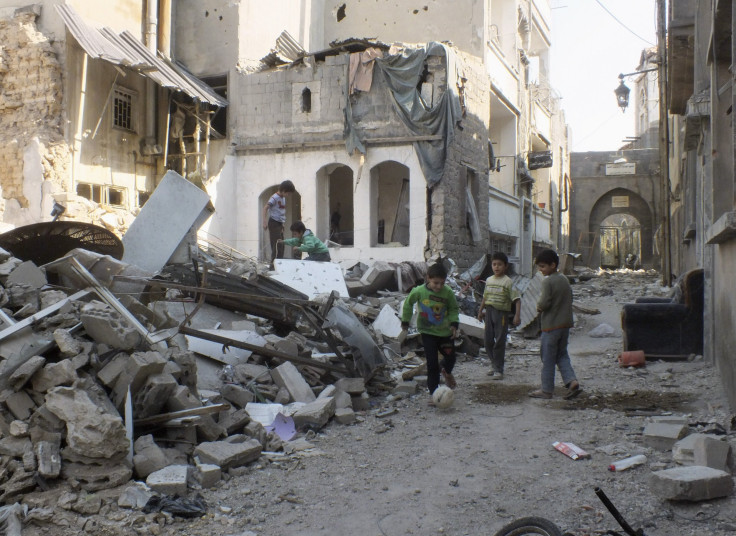Eid Cease-fire In Syria Uncertain; Israel-Gaza Clashes Intensify

As Muslims worldwide prepare for the four-day Eid al-Adha holiday, which is typically celebrated with family gatherings, sweets, charity, prayer and new clothes, many Syrians are wondering if their festivities will be ruined by gunfire and clashes in the street between government forces and rebels.
A Syrian cease-fire announced by Lakhdar Brahimi, the international mediator for the war-torn country appointed by the United Nations and the Arab League, offered some hope that citizens would be able to enjoy a short respite from the 19-month-long conflict that monitors say has so far killed 30,000 Syrians.
But the announcement was quickly cast in doubt by the Syrian Army, which said it had not yet committed to any cooling of guns.
"The final position on this issue will be announced tomorrow," a ministry statement said, according to Reuters.
That comment came just hours after Brahimi announced at a press conference in Cairo that he had elicited an “agreement from the Syrian government for a cease-fire during Eid.”
This week’s violence has not fostered any confidence that a temporary halt would take place, allowing Syrian families to commenorate peacefully the holiday honoring the story of Abraham's willingness to sacrifice his elder son as an act of obedience to God.
On Tuesday, Syrian warplanes struck a town in the north held by rebels of the Free Syria Army, or FSA, a loose alliance of civilians and defected army officers seeking to oust President Bashar al-Assad. On the same day, a bakery was smashed by Syrian Army artillery fire in a rebel-controlled area of Aleppo, injuring at least 30 and killing at least 20, according to the New York Times.
The FSA is reportedly receiving material support from Gulf Arab states with the assistance of Turkey and the U.S. Central Intelligence Agency, which Russia considers a violation of Syria’s sovereignty and the Assad administration it recognizes as the legitimate state authority. Russia considers rebels there to be terrorists.
A Russian general on Wednesday said the FSA is using U.S.-made Stinger anti-aircraft missiles.
"We have reliable information that Syrian militants have foreign portable anti-aircraft missile systems, including those made in the USA. ... It should be cleared up who delivered them," Gen. Nikolai Makarov said, according to the Associated Press.
Israel Vs. Hamas Intensifies
Meanwhile, Eid in Gaza could be celebrated with mortar and rocket exchanges between Israeli forces and Hamas rebels nestled in the nooks of a densely populated Gaza Strip.
On Wednesday, at least 72 rocket and mortar attacks from Gaza elicited Israeli airstrikes that killed or injured several people. According to the Jerusalem Post, four Hamas members were killed, and eight Grad rockets from Gaza were intercepted by the Iron Dome defense system. The Associated Press reported Wednesday that the clashes injured several aid workers in Gaza and killed four Palestinians since Tuesday.
The escalation of violence comes a day after an unprecedented visit by an Arab head of state to the Gaza Strip, home to 1.5 million impoverished people living under a blockade aimed at keeping weapons out of the hands of Hamas militants, but which also chokes off the free flow of goods and restricts the movement of people.
On Tuesday, Emir Hamad bin Khalifa al-Thani of Qatar was seen cajoling Hamas officials, pledging $400 million in infrastructure aid. Hamas won a majority in the Palestinian Legislative Council and is viewed by many in the Arab world as the democratically elected authority.
However, it is seen by the U.S. and Israel as a terrorist organization seeking to destroy the Jewish state. Al-Thani's visit to Gaza's Hamas authority is viewed by some as a snub to the Fatah-controlled West Bank.
"All of the Fatah people are not happy. Qatar is coming only for Hamas," a former cabinet minister in the Palestinian Authority said, according to the Wall Street Journal.
© Copyright IBTimes 2024. All rights reserved.






















